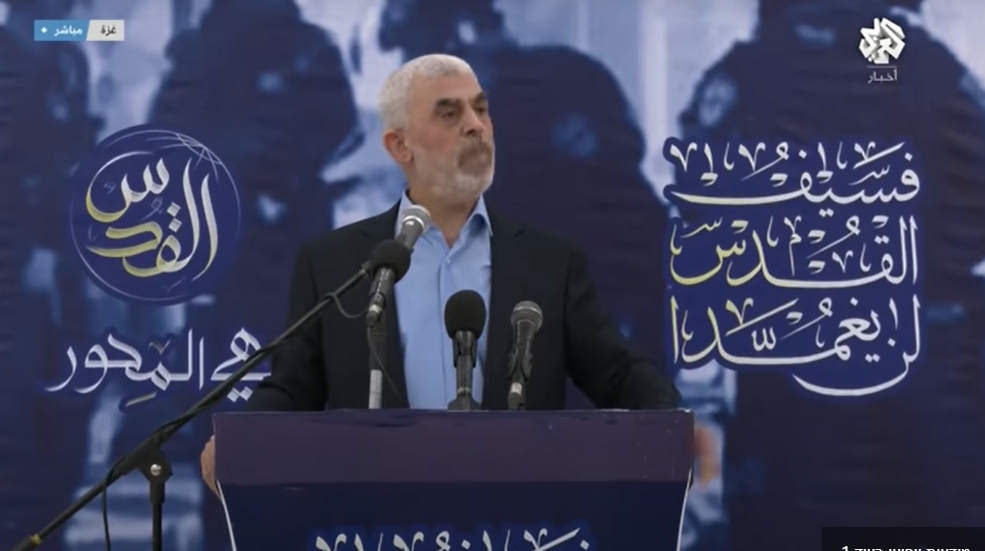Sources in the Gaza Strip, close to Hamas, report that the military leadership of Hamas, led by Yahya Sinwar, is closely monitoring the protest demonstrations in Israel against the Netanyahu government and the disputes within the war cabinet.
This unrest is a crucial factor in their assessment of the ongoing conflict, including considerations regarding the continuation of the war and the potential for a deal to return hostages and establish a ceasefire.
According to these sources, the ultimatum given by Minister Benny Gantz to Prime Minister Netanyahu last week delighted Yahya Sinwar.
He sees this as the beginning of the collapse of Netanyahu’s right-wing government and is in no hurry to agree to any hostage return deal with Israel.
The threat to issue international arrest warrants against Prime Minister Netanyahu and Defense Minister Galant further motivates Yahya Sinwar to resist any demands presented by Israel.
In the military wing of Hamas, there is a dismissive attitude: “Let’s see which international force will dare to come to Gaza and arrest Yahya Sinwar and Muhammad Def. These are two jihadist commanders who have no intention of leaving Gaza. They plan to fight against Israel to the end. The Hague Criminal Court made a big mistake by deciding to demand the issuance of arrest warrants against Yahya Sinwar and Muhammad Def.”
Regarding a possible arrest warrant against Hamas leader Ismail Haniyeh, the situation is different. Haniyeh often travels internationally for political activities and business, so he will now need to carefully consider his travel plans due to the risk of arrest and the potential threat from the Israeli Mossad.
Yahya Sinwar anticipated the controversies and divisions that would arise in Israeli society following the kidnapping of more than 200 Israeli and foreign hostages. During the 23 years he spent in an Israeli prison, he thoroughly researched the intricacies of Israeli society and its political, social, and media systems.
In truth, Sinwar doesn’t need to exert much effort. Serious leaks from defense cabinet meetings on security and strategy, as well as media reports highlighting the controversies, provide him with excellent intelligence on the strategies he should adopt against the right-wing government.
He has learned to identify the weak points of the Israeli political and security elite.
The internal disputes in Israel, harking back to the period before October 7th of last year, are considered one of the achievements of Hamas’ attack and the massacre in the settlements surrounding Gaza. These divisions boost Yahya Sinwar’s morale and fortify his resolve.
In Gaza, Hamas mocks the discussions in Israel about the post-war future of the Gaza Strip and who will govern it.
For Yahya Sinwar, the war is far from over, and he continues to rule Gaza with a firm hand.
The civilian government system of Hamas remains largely intact, allowing him to distribute humanitarian aid with the participation of the Gazan population.
Talks about the Palestinian Authority (PA) entering the Gaza Strip to rule after the war are not taken seriously by Hamas leadership, who view the PA as corrupt and opportunistic, seeking to control the substantial budgets for Gaza’s reconstruction.
No PA security officer would dare confront the military wing of Hamas, and such an attempt could trigger blood feuds and possibly a civil war similar to Sudan.
Hamas will not allow this, and the PA leadership lacks the political courage to enter Gaza atop Israeli tanks.




